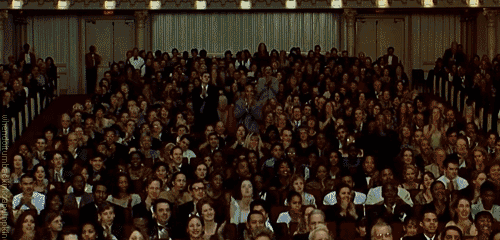When watching Spotlight last week, a certain phrase kept coming up. A phrase repeated over and over, not just in the movie, but in more recent news too – the Franken situation and the President’s Club dinner horrorshow.
But they do so much good [in the community/at their job/for the children] said not as a denial that the accusations could be true, but as a dismissal, as an excuse, or even a warning to look the other way, say nothing, do nothing, don’t rock the boat. The implication is that the good these people/organisations do offsets the pain, distress and damage they cause. That the lives and souls they help outweigh the lives injured, destroyed or lost to the evils they commit.
Of course, it’s not the victims making this choice. Those uttering the phrase, those rallying around the offenders are not only not the victims, they’re never likely to be the victims. It may be white people pleading that someone be spared from the loss of their job because of “a few racist remarks”, because that person gives a lot to charity. The men and women who cajoled, bullied and kept people quiet about the Church hiding those who preyed on children – safe themselves by being well out of childhood. The men who come out of the woodwork when a prominent man is accused of sexual harassment or even rape. It’s never their sacrifice, though they’ll play the martyr, claiming that the burden of knowing but keeping it quiet for the greater good is somehow equivalent to what the true victims suffer.
When does the “greater good” outweigh the costs? Does it ever? When do we get to say “it doesn’t matter what happened to you, X is too good, too important. You must suffer for us all.”? It’s easy to say that the answer should be “never”, but we say it all the time. The more embedded the perpetrators are in our infrastructure and the more different the victims are from us, the easier it seems to be to say.
It’s not even safe to say “well, the victim should decide”, because it’s almost never a free choice. Victims aren’t the ones with power. Hurt does not breed strength. They may not fight back, not because they want to protect the good that X does, but because they are too tired, too hurt, too scared.
So where is the line? What balances the scales, and who gets to set them up in the first place? The only certainty is that the way we do it now isn’t near to good enough.
